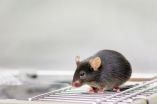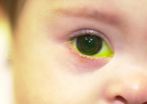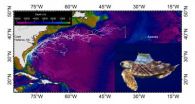(Press-News.org) Researchers looking at how healthcare professionals deal with domestic violence cases have identified that GPs, practice nurses and practice managers are uncertain about how to respond to the exposure of children to domestic violence.
With at least 1.2 million women and 784,000 men experiencing domestic violence and abuse in England and Wales each year, the negative effect on families and children can be far-reaching. Childhood exposure to domestic violence and abuse can result in long-term behavioural, mental health and education problems.
However, new research has shown that lack of clear guidance and training on the interface between domestic violence and child safeguarding has led to uncertainty about how such cases should be managed.
Researchers from the University of Bristol will share their findings with health practitioners and researchers at the South West Society for Academic Primary Care (SW SAPC) meeting today [07 March].
Preliminary results from the two-and-a-half year RESPONDS (Researching Education to Strengthen Primary care ON Domestic violence and Safeguarding) project funded by the Department of Health shows that there is uncertainty among primary healthcare professionals about the appropriate management of families experiencing domestic violence.
Interviews were conducted with 42 GPs, 12 practice nurses and 15 practice managers across six sites in England. Scenarios were used to explore how practitioners identified and responded to cases of domestic violence where children were involved.
Conversations about domestic violence and child safeguarding were described as 'difficult' and many respondents were unsure of thresholds for referral to social services.
Respondents' reactions to the same scenarios were substantially different, highlighting a lack of clear guidance and training.
Primary care practitioners had little knowledge of local domestic violence services and few had direct communication with children's social services.
The study also found practitioners' face-to-face communication with children and young people was limited.
However, they appeared ready to talk to mothers about domestic violence and some suggested that they would attempt to engage with abusive fathers.
Professor Gene Feder, Professor of Primary Care at the University of Bristol, led the research. He said: "Domestic violence poses a major challenge to public health, social care and health care services, yet it often goes unrecognised by professionals in those sectors. Being exposed to it can have a damaging effect on children, so the role of primary healthcare professionals is vital."
Dr Eszter Szilassy, from Bristol University's School of Social and Community Medicine, added: "Our study showed that many primary care clinicians are unsure how to support the parent experiencing abuse whilst protecting her safety and autonomy, maintaining confidentiality, and ensuring the safety of her children.
"The lack of clear guidance and training on the interface between domestic violence and child safeguarding is resulting in a variation of care and uncertainty in managing these families. This major gap in policy means that opportunities to support women and children experiencing domestic violence are being missed."
The findings of the RESPONDS study have been used to help develop a training programme which is currently being piloted and evaluated in two sites in England.
The training aims to increase professionals' confidence and skills in managing these complex issues and to improve their understanding and links with local domestic violence and child protection services.
INFORMATION:
The RESPONDS study was carried out by the Universities of Bristol, Central Lancashire, Manchester and Melbourne. It was funded by the Department of Health Policy Research Programme.
Primary care needs to 'wake-up' to links between domestic abuse and safeguarding children
2014-03-07
ELSE PRESS RELEASES FROM THIS DATE:
Researchers map European climate change
2014-03-07
The majority of Europe will experience higher warming than the global average if surface temperatures rise to 2 °C above pre-industrial levels, according to a new study published today.
Under such a scenario, temperatures greater than the 2 °C global average will be experienced in Northern and Eastern Europe in winter and Southern Europe in summer; however, North-Western Europe—specifically the UK—will experience a lower relative warming.
The study, which has been published today, 7 March, in IOP Publishing's journal Environmental Research Letters, also shows that in ...
Drug protects mice against malaria brain damage, raises levels of BDNF in humans
2014-03-07
Cerebral malaria is a serious complication of infection with the malaria parasite, affecting approximately one in a thousand children in areas where malaria is common. Many of the patients die, and among those who survive, about a third have lasting cognitive and neurological disabilities, including epilepsy and learning disorders. A study published on March 6th in PLOS Pathogens shows that a known drug can prevent brain damage in a cerebral malaria mouse model and eliminate subsequent neurological deficits.
Infection with the malaria parasite elicits a strong immune ...
Simple urine test detects common causes of kidney dysfunction after transplantation
2014-03-07
Washington, DC (March 6, 2014) — A new noninvasive urine test can distinguish among different causes of acute kidney dysfunction after transplantation. The test, which is described in a study appearing in an upcoming issue of the Journal of the American Society of Nephrology (JASN), may allow patients to avoid invasive kidney biopsies when their transplanted organ is not functioning properly.
When creatinine levels are elevated in the blood of a kidney transplant recipient, it is an indication that the transplanted kidney is not functioning well. There are several reasons ...
Birds display lateralization bias when selecting flight paths
2014-03-07
Flocks of birds manage to navigate through difficult environments by individuals having predispositions to favour the left- or right-hand side, according to research published in PLOS Computational Biology this week.
Scientists at The University of Queensland's Queensland Brain Institute (QBI) and the Australian Research Council Centre of Excellence in Vision Science found that budgerigars display individual bias to fly to the left or right. This allows flocks to quickly navigate past obstacles by being able to split and not slow down due to crowding.
Dr Partha Bhagavatula, ...
Fighting for survival in the gut: Unravelling the hidden variation of bacteria
2014-03-07
This news release is available in Portuguese.
Our intestines harbour an astronomical number of bacteria, around 100 times the number of cells in our body, known as the gut microbiota. These bacteria belong to thousands of species that co-exist, interact with each other and are key to our health. While it is clear that species imbalances may result in disease, it is unclear at what pace does each species in the gut evolves, a process that contributes to the chance of a particular innocuous species becoming harmful to the host.
In the latest issue of the scientific ...
Contacts better than permanent lenses for babies after cataract surgery
2014-03-06
For adults and children who undergo cataract surgery, implantation of an artificial lens is the standard of care. But a clinical trial suggests that for most infants, surgery followed by the use of contact lenses for several years—and an eventual lens implant—may be the better solution. The trial was funded in part by the National Eye Institute (NEI), a component of the National Institutes of Health.
A cataract is a clouding of the eye's lens, and can be removed through a safe, quick surgical procedure. After cataract removal, most adults and children receive a permanent ...
NASA's Hubble Telescope witnesses asteroid's mysterious disintegration
2014-03-06
NASA's Hubble Space Telescope has recorded the never-before-seen break-up of an asteroid into as many as 10 smaller pieces.
Fragile comets, comprised of ice and dust, have been seen falling apart as they near the sun, but nothing like this has ever before been observed in the asteroid belt.
"This is a rock, and seeing it fall apart before our eyes is pretty amazing," said David Jewitt of the University of California at Los Angeles, who led the astronomical forensics investigation.
The crumbling asteroid, designated P/2013 R3, was first noticed as an unusual, fuzzy-looking ...
Nearby star's icy debris suggests 'shepherd' planet
2014-03-06
VIDEO:
NASA Goddard's Aki Roberge explains how observations with the Atacama Large Millimeter/submillimeter Array in Chile tell us about poison gas, comet swarms and a hypothetical planet around Beta Pictoris....
Click here for more information.
An international team of astronomers exploring the disk of gas and dust around a nearby star have uncovered a compact cloud of poisonous gas formed by ongoing rapid-fire collisions among a swarm of icy, comet-like bodies. The researchers ...
Study provides new information about the sea turtle 'lost years'
2014-03-06
MIAMI – A new study satellite tracked 17 young loggerhead turtles in the Atlantic Ocean to better understand sea turtle nursery grounds and early habitat use during the 'lost years.' The study, conducted by a collaborative research team, including scientists from the University of Miami (UM) Rosenstiel School of Marine and Atmospheric Science, was the first long-term satellite tracking study of young turtles at sea.
"This is the first time we were able to show the maiden voyage of young turtles after they left the beach," said Rosenstiel School scientist Jiangang Luo ...
$4M grant to improve asthma care for So Cal Latino youth
2014-03-06
SAN DIEGO, Calif. (March 6, 2014)—A team led by researchers at San Diego State University has been awarded $4 million to enhance asthma education and treatment strategies in California's Imperial Valley, where children are twice as likely as the national average to suffer from asthma.
The grant will allow researchers to better understand the specific asthma needs of Imperial Valley's largely Latino/Latina population, as well as develop more effective approaches to treatment for families, communities, and physicians.
Approximately 4.5 million African-Americans and 3.6 ...




